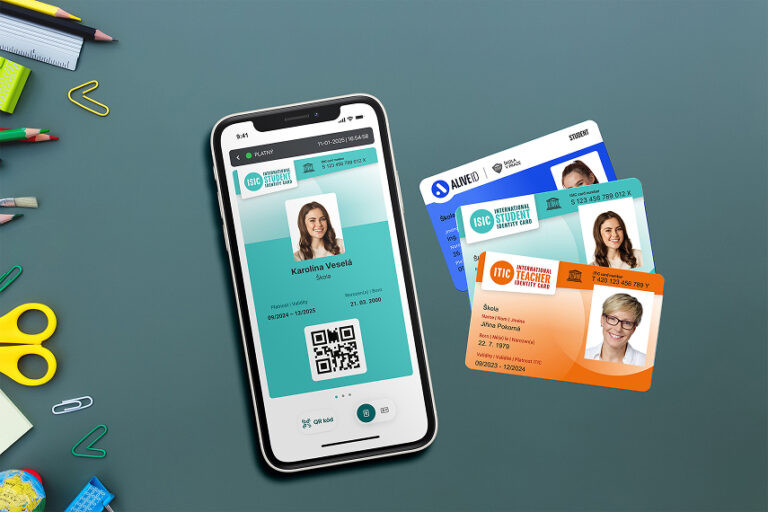Starting your career right after graduation can seem like an impossible task — especially when you don’t have much experience to show off. But one thing’s for sure: even the most successful CEOs once had to write their very first CV. So don’t worry — in this article, we’ll guide you on how to write a strong CV, even as a student.
A CV has to look good
Try thinking about creating your CV like setting up a Tinder profile — except your goal isn’t a date, it’s an interview. Just like Tinder users, recruiters go through dozens of profiles, and you need to stand out among them.
If you want to catch their attention, make sure your CV makes a perfect first impression. What does that mean? First and foremost, it should look good. Like it or not, first impressions always depend on aesthetics and visual appeal.
Clear, concise, and well-organized
You’ll make a strong impression by structuring your content clearly into sections, using bullet points to break up the text, and sticking to a maximum of two simple fonts like Arial or Calibri (so forget any unreadable curly ones). Highlight the most important information so it stands out at first glance. As a general rule, your CV shouldn’t be longer than two A4 pages — though in most cases, a single page will be more than enough.
CV details
Photo
A good photo can help you make a positive impression, as it makes it easier for recruiters to remember you. But if you don’t want to be remembered as “that selfie guy from vacation” and would rather be seen as a strong candidate, go for a professional photo. If you don’t have one and don’t have time to get one, it’s better to leave it out altogether.
Contact
Including your mailing address in your CV is optional. Your phone number and email are more than enough. Just make sure your email address isn’t something like kotatko97@hotmail.com. It needs to look professional — ideally just your first and last name. After all, you'll probably be sending your CV from this same email, and you'd like the recruiter to actually open it.
CV profile
Your CV profile should include two to three sentences that summarize who you are and what you're looking for. Right after your photo (if you include one), this is the first section a recruiter will read — and if you don’t put effort into it, it might be the last. But don’t stress. Stay calm and take your time to get it right.
What to look out for
Putting effort into something definitely doesn’t mean exaggerating — and especially not making things up. Also, forget about vague, empty phrases like “I’m a team player with strong communication skills and an excellent work ethic.” Recruiters are probably already getting headaches from reading those.
What belongs in the profile?
Convince the recruiter of your strengths. Mention your real academic or professional achievements and anything you're genuinely proud of. Keep it short and to the point, and use action verbs. If you’re unsure how to go about it, check out examples of professional CVs to see what it could look like. With a solid template, you’ll have it done in no time.
Education
For students and recent graduates, education carries more weight, so place it right after your CV profile. Start with your current studies (if you're still studying), then list your highest completed level of education. You don’t need to include elementary school — it’s assumed you completed it if you made it to high school or university.
Be sure to include the name of the school, your field of study, and the year of completion. For ongoing studies, state the expected graduation year. If you’re a university graduate, also include your degree title. If you’ve taken any courses, internships, or training programs, feel free to include them here as well.
Work experience
Relevant work experience is key to landing your dream job. But let’s be honest — right after school, most people don’t snag their dream job right away. So your main goal for now is likely just gaining valuable experience in the first place.
Bragging about work experience you don’t have is tough. Luckily, there’s a way around it. The key is to show potential employers that you’ve got what it takes. Having no work experience doesn’t mean you have nothing to write about. Don’t believe it? Then check out some useful tips on how to write a CV when you lack work experience.
Dig deep into your memory.
Do you have any useful skills from school, like problem-solving or public speaking, an award from a competition, or maybe volunteer experience? Have you worked on projects that required organizational skills and teamwork, or even completed an internship? Highlight all of that in your CV.
The point is: if you can show that your studies were more than just attending classes, doing homework, and passing exams, you’ll immediately come across to recruiters as a capable candidate.
Skills and abilities
Not sure what skills and abilities to include in your CV? The trick is to make them as relevant as possible to the specific position you're applying for. So if you're applying to multiple jobs — which you definitely should — adjust this section slightly for each one. How do you do that?
What is the employer looking for?
Pick a few key skills from the job description that you can back up with specific examples. You'll need them for your cover letter and the interview anyway. General skills that almost everyone has — like using the internet or basic knowledge of Word — can be left out.
Soft and hard skills
In this section, include a mix of soft skills—like creativity, critical thinking, teamwork, etc.—and hard skills, such as programming, project management, graphic design, and so on. Also list your language skills with the specific level of proficiency, and include your driver’s license if you have one.
Personal interests
At the end of a CV, it’s common to include personal interests. This section isn’t mandatory, so many people tend to rush through it — don’t be one of them. Treat it as an opportunity to show more of your personality. What defines you beyond your academic achievements? Do you have a hobby that reflects skills relevant to the job you’re applying for? If so, definitely include it in your CV.
Final check
Once you've written your CV, go through it several times to check for any mistakes or typos — they could cost you a job interview. Think about whether everything that should be there is included, and imagine you're a recruiter holding your CV in hand.
What impression does it give? If it doesn’t fully convince you, consider what could be improved. If you’re unsure, ask someone more experienced for advice. A second pair of eyes can catch things you might miss. Feedback can really help take your CV to the next level.






